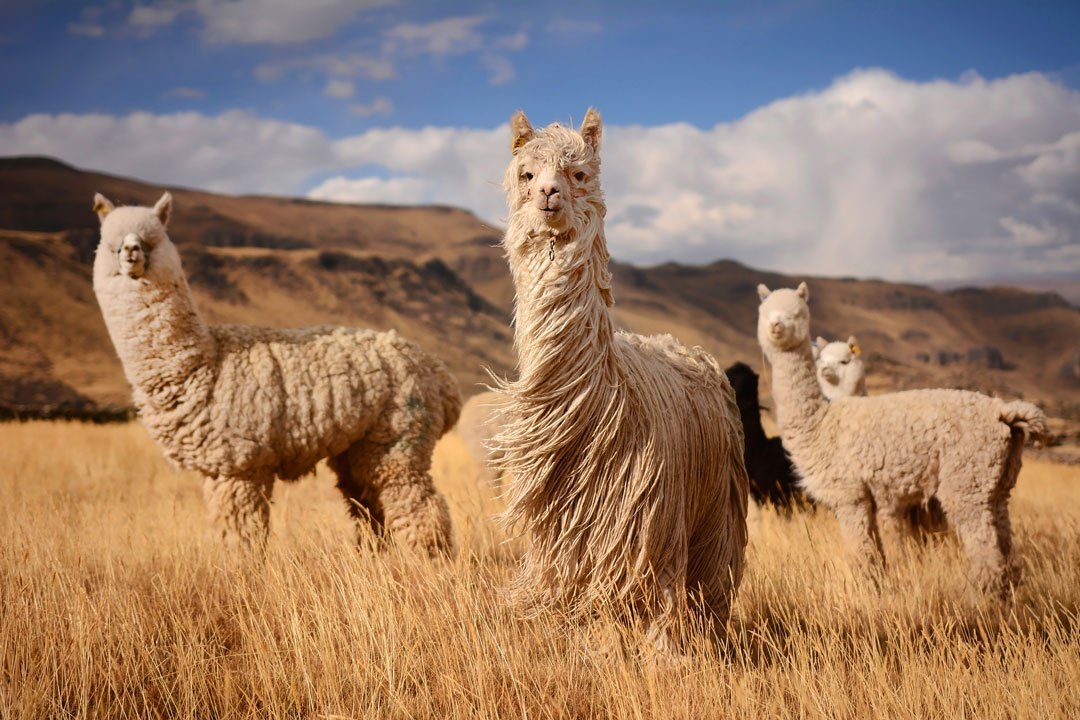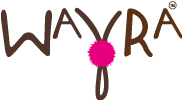

Lima, Peru
June 3rd, 2020
Dear partners,
I am writing on behalf of our team and artisans as we are aware of the videos posted and a new investigation from PETA (People for the Ethical Treatment of Animals) as reported in the NY Times about the alpaca industry. It is staying true to our philosophy, that Wayra respects the protection of animals.
However, we must clarify that what is shown in the media is NOT a common practice and it is a one of case which needs to be investigated to find the responsibles of this shameful act and punish them accordingly. We will continue to work diligently to ensure ethical practices are maintained and that way the Peruvian communities could keep developing and growing thanks to this industry. It is also important to mention we have two of the most renowned yarn supplier companies, Inca Tops S.A and Michell & CIA S.A., as strategic partners.
Wayra’s mission is to produce industrial and handmade textiles with natural fibers, that generate sustainable development under fair trade practices with proper remuneration and protecting the environment. It is in this context that Wayra has always, in the 17 past years, taken extreme care in all aspects that involve the production process, from the shearing of the alpaca all the way to the export of our products.
With nothing else to clarify we expect that this situation is rectified and please do not hesitate on asking us for further information.
Sincerely,
The International Alpaca Association has more than 65 associates from the five continents, aimed at generating shared value, sustainability and growth of a wonderful and unique species: the alpaca.
Over the last few days there has been public questioning about the shearing practices of one of our members. As a result, our entire industry is being equally questioned and it behooves us to say something about it.
The Peruvian Andes concentrate 85% of the world population of alpacas, in an ecosystem of extreme climates and natural pastures above 4,000 meters of altitude, where more than 90,000 rural families with low incomes subsist, challenging these natural conditions and giving value to its precious fiber.
The shearing of fur animals is an almost identical procedure in all species: the animal is taken from the pen, it is hold, its hair is cut, and it is returned to the pen. The shearing of the alpaca is practically the same as that of the sheep, with the only difference that, being a larger animal, with longer legs and a little rougher and less docile than the sheep, it is held with a few ropes. However, the process is short and avoids hurting the animal.
Shearing is also healthy for the animal. An alpaca overloaded with its own hair makes this an environment full of parasites, dirt and even weight that gets to press and deform its own back and, eventually, suffocate it. Even though a little less than the sheep, the alpacas are calm animals and generally allow us to shear them with some patience. There are, as in all species, individuals that react with greater stress to the shearing operation than others. That is why the AIA and all its members work hard, hand in hand with the Government of Peru, to promote technical standards of good animal treatment among the largest possible number of producers.
Those of us who raise, care for, and develop an alpaca-based industry have a responsibility and know that we are subject to rigorous public scrutiny, which is good and it’s the way it should be. Our farms and operation centers have their doors open to clients, visitors, authorities and certifiers. That transparency is what ensures the welfare of the animal and the reliability of the products.
Our task is to contribute to a better understanding of the context of this imputation, which affects not only a company or a union, but also the sustainability of the alpacas and the subsistence of countless artisan and alpaca raising families.
We firmly believe that our responsibility goes beyond how we treat alpacas in our operations. Above all, we protect the healthy fate of the alpaca, so that it is not replaced by unsustainable management that makes it a source of meat and not fiber. We reject any form of animal abuse and we trust that the work we have been carrying out with the participation of all members of the production chain and government entities, will ensure a universal and responsible treatment of alpacas that guarantees their sustainability over time.
Arequipa, June 9, 2020
Dear Customers,
We would like to draw your attention to a video recently transmitted by the organization called PETA (People for the Ethical Treatment of Animals) regarding the shearing system of our Mallkini farm. We would like to further specify the following aspects:
· The shocking images transmitted in the video undoubtedly show excesses that we deeply deplore and affect us profoundly. They have clearly been edited and show unacceptable mistreatment practices carried out by negligent shearers, which go against the established procedures for shearing in our farm. These are strictly governed by the National Technical Standard, whose promulgation we have promoted, and which also has the approval by F.A.O. (Food and Agriculture Organization). Therefore, this footage clearly constitutes an isolated case.
· We express once again our absolute rejection to any type of animal abuse and we reiterate that we have immediately started an exhaustive investigation in order to establish responsibilities and apply all the corresponding sanctions.
· It is also important to mention that, despite having rigorous international certifications such as USDA ORGANIC and FAIR TRADE, which also verify good animal management practices, we are already optimizing the training of our shearers and significantly improving our control systems. In order to guarantee that an event, clearly isolated like this, will never happen again.
We share with you videos of shearing, (https://youtu.be/cD-pnl2bVhY) both at our Mallkini farm and from other countries, where the common shearing procedure is appreciated and shows that the process is far from constituting animal abuse.
We want to reiterate our commitment to continue striving to improve our animal welfare, to work for a healthier environment, to provide the best products and services to all of you, to take care of our collaborators, and to contribute to our community, always in an honest and transparent manner.
Recent Comments